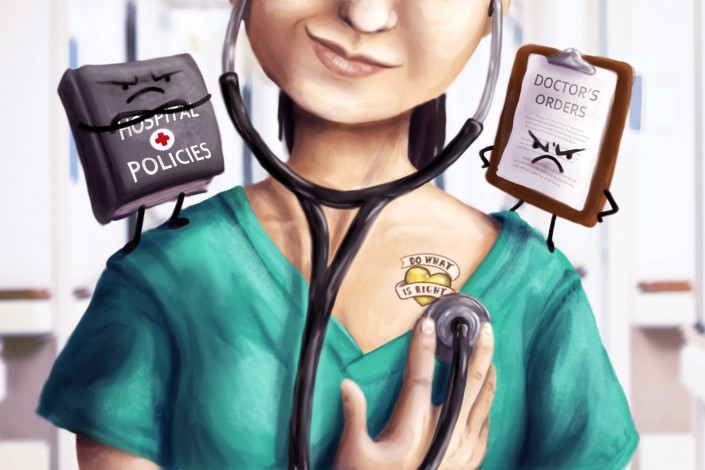Positive deviance: Why do nurses decide to violate policies and orders?

Image: Academic Affairs Communications, Research Communications and Public Relations
Professional nursing standards were created to guide patient care services and lay the foundation for best practices. However, health care is unpredictable. What works for one patient, might not work for another.
What happens when hospital policies contradict the nurse’s opinion of the right thing to do?
Jodie Gary, assistant professor of nursing at the Texas A&M Health Science Center College of Nursing, explores this topic in her concept analysis, “Exploring the Concept and Use of Positive Deviance in Nursing,” available online.
Positive deviance involves an intentional act of breaking the rules in order to serve the greater good. The concept is widely used in business, management, sociology and criminology; however, there is no consistent definition that applies to nursing.
Gary used the Walker and Avant method of concept analysis to explore and identify an operational definition for the term. Positive deviance is intentional and honorable behavior that departs or differs from an established norm; contains elements of innovation, creativity, adaptability, or a combination thereof; and involves risk for the nurse.
Essentially, nurses might have to react creatively, and break hospital policies or physician’s orders, in order to meet the needs of the patient.
“The concept of positive deviance is useful, offering nurses a basis for decision making when the normal, expected actions collide with the nurse’s view of the right thing to do,” Gary says. “Nurses must balance their decisions for patient care between what evidence-based practice dictates, what is mandated by law and what the situation demands.”
There is evidence that nurses in the health care setting routinely use positive deviance. However, because of strict policies and fear of loss of license, nurses generally choose not to report (or are unable to report) the exact care they provided. Thus, there is no outcome data for the care that was actually provided.
“Nurses, who are positive deviants, may be generating new knowledge on the fly and we need to be able to access that knowledge,” Gary explains.
It is essential that nurses have a way to safely report the deviations they make for the sake of patients. Accurate reporting and documentation of the actual nursing care delivered are vital to having accurate outcomes data, to ensuring patient safety, and to furthering the profession.
“As nurses become more autonomous providers of primary health care services, I believe the use of positive deviance must become a goal,” Gary says.

